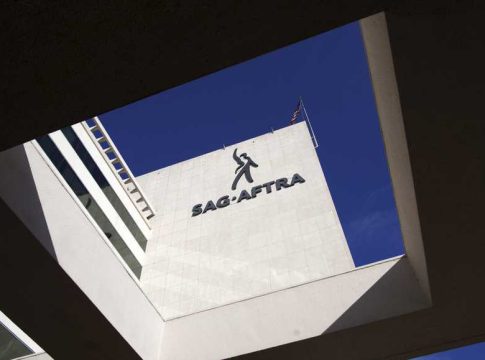Hollywood Video Game Performers Reach Tentative Agreement Amid AI Concerns
Negotiation Breakthrough After Months of Tension
After nearly a year of striking, members of the Screen Actors Guild-American Federation of Television and Radio Artists (SAG-AFTRA) have secured a tentative agreement with several key video game companies, signaling a potential end to their labor dispute. The strike began in July 2024, driven primarily by concerns over the unchecked usage of artificial intelligence in the gaming industry.
The AI Threat: Reputation and Livelihoods at Stake
SAG-AFTRA’s concerns are not unfounded; they argue that the pervasive and unregulated use of AI poses a risk even greater than in film and television. The ability to easily create convincing digital replicas of performers’ voices and likenesses raises significant ethical questions. Performers fear that AI could replace them altogether, resulting in a loss of work and opportunities.
Duncan Crabtree-Ireland, SAG-AFTRA’s National Executive Director, emphasized that the new deal includes "necessary AI guardrails," which would safeguard performers in this increasingly digital landscape. Such protections resonate deeply in an industry where the line between human talent and machine-generated performance is becoming increasingly blurred.
Key Players in the Negotiation
The bargaining group consisted of major industry players, including divisions of Activision, Electronic Arts, Epic Games, and others. These companies are at the forefront of creating the digital worlds where performers’ talents are showcased. Given their major influence and resources, their involvement in these negotiations was crucial for progress.
Path Ahead: Ratification Process
While the tentative contract is a significant milestone, it requires approval from SAG-AFTRA’s National Board and eventual ratification by union members. Until this process is complete, performers will remain on strike, maintaining their stance to secure comprehensive protections against the misuse of AI.
Lessons from the Past
This isn’t the first time video game performers have had to rally for their rights. In 2016, a similar strike lasted nearly a year and resulted in vital improvements, including a bonus compensation structure for voice actors. The ongoing evolution of AI technologies poses new challenges, but it also amplifies the importance of solidarity among performers in addressing these pressing issues.
Implications for the Future
As artificial intelligence continues to transform industries, the outcomes of this agreement will likely serve as a benchmark for future negotiations in other entertainment sectors. With emerging technologies shaping the workforce, the balance of power between creators and companies remains a crucial conversation.
As the video game industry navigates this landscape, the role of human talent becomes even more critical. Protecting livelihoods in the age of AI is not just a necessity but an imperative for preserving creativity and authenticity in digital media.

Writes about personal finance, side hustles, gadgets, and tech innovation.
Bio: Priya specializes in making complex financial and tech topics easy to digest, with experience in fintech and consumer reviews.

